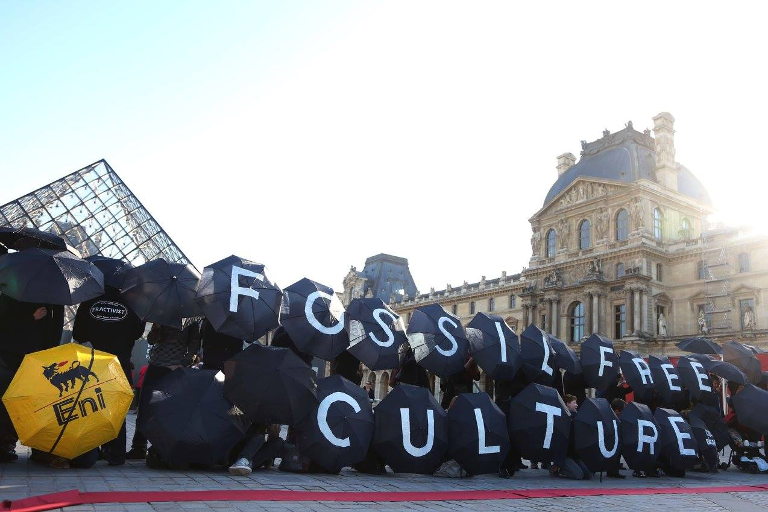I was asked recently about the point at which I decided I could no longer continue to do any work with BP. This is what I said:
’I worked closely with senior leaders in BP for more than a decade, intent on helping them radically change course. That work came to an end when I came to the incontrovertible conclusion that BP is neither sincere nor serious in addressing the climate crisis. Together with other oil majors, BP has been accused of fully understanding the science of climate change as far back as the early 1980s, and downplaying and obscuring that science ever since, always in the short-term interests of its shareholders. Regrettably, its current leadership is stuck in the same pattern – all the time using philanthropy to hide its past and present culpability.
(That timing is important. Around 50% of the greenhouse gases currently warming our planet have been emitted in the last 30 years.)
The person who asked me the question was Mark Rylance, prior to him stepping down as an Associate of the Royal Shakespeare Company to protest against its continued relationship with BP as principal sponsor for the RSC’s Assisted Tickets scheme for 16- to 25-year-olds.
The Guardian asked Mark to write an article explaining his decision, and it’s one of the most significant contributions to the ongoing debate about whether arts organisations and NGOs should maintain any kind of relationship with BP – which is why I’m keen to provide a link to it here. But this is the nub of what Mark says:
‘BP has made the third biggest contribution to climate change of any private company in history. It apparently knew three decades ago we were about to cook our planet, and then lit the fire. It has committed to invest £41bn in new oil extraction over the next ten years. Its current advertising campaign suggests the company is investing heavily in renewables, yet in reality 97% of its capital investments will remain in oil and gas. I do not wish to be associated with BP any more than I would with an arms dealer, a tobacco salesman, or anyone who wilfully destroys the lives of others alive or unborn.
The RSC’s response? We must be ‘phased and pragmatic’. In reality, this means the RSC will continue pushing BP’s brand onto a generation of young people who have – in huge numbers through the ongoing school strikes – told adults they need to step up their response to the climate crisis now. Surely the RSC wants to be on the side of the world-changing kids, not the world-killing companies?’
Not everybody agreed with what he’s said and done, but there’s no doubt that all the extraordinary work carried out by Culture Unstained, Platform, Art Not Oil, BP or not BP? is now having an increasingly influential effect.
A couple of days later, on the back of all this, George Monbiot weighed in with another excellent article in the Guardian, interestingly shifting the focus from BP to Shell, and from arts organisations to those environmental NGOs that still take Shell’s money. He highlighted Shell’s new $300 million fund for ‘investing in natural ecosystems’ over the next three years, ‘to support the transition towards a low-carbon future’.
The hypocrisy is indeed staggering. Last year, Shell poured $25 billion into new oil and gas assets; it can’t even be bothered to provide details in its Annual Report about revenues from its renewable energies division – they’re still little more than a rounding error. It refuses to support legally-binding targets for net zero emissions in the EU by 2050. As George Monbiot said:
‘Shell’s strategy is so transparent that it’s hardly worth debating. It wants to stay in the fossil fuel business, but it needs to fend off the regulation that might threaten this business. The natural ecosystems fund, in my view, is blatant greenwash.
Shell has longstanding relationships with four ‘environmental partners’: the International Union for the Conservation of Nature, the Nature Conservancy, Wetlands International, and Earthwatch. I believe it is just as wrong for these groups to take its money as it is for the RSC to take money from BP. It surprises me that there is not as much pressure on them to break their links as there has been, for example, on the British Museum, whose relationship with BP is becoming a national embarrassment.’
George Monbiot is absolutely right. There’s no justification in trying to differentiate between really bad oil companies, bad oil companies, and less bad oil companies; and zero credibility in taking that tainted money to help protect the biodiversity and ecosystems that will in part be devastated by the emissions from the burning of that oil and gas.
I know how hard it is for organisations to make these decisions, and this is difficult for me personally. George gave me an exceptionally hard time throughout the years that I was working with BP and Shell. That made me angry, as I still thought then (ten years ago) that it was worth trying to get the leaders of these companies, with all their incredible resources and scientific expertise, to see the error of their ways before it was too late – both for the planet and indeed for their companies.
That was an illusion. An illusion sustained ‘in good faith’, but an illusion for all that. Belatedly, I know a lot better now. The leaders of these companies, past and present, are beyond our reach, and pretty much beyond redemption. The priority now has to be actively to support all divest/invest initiatives (in the arts, in our universities, in the financial services sector etc), and to ensure that our own pensions are invested accordingly. In a Climate Emergency, nothing else will suffice.
Teaser photo credit: Art not Oil Facebook page





